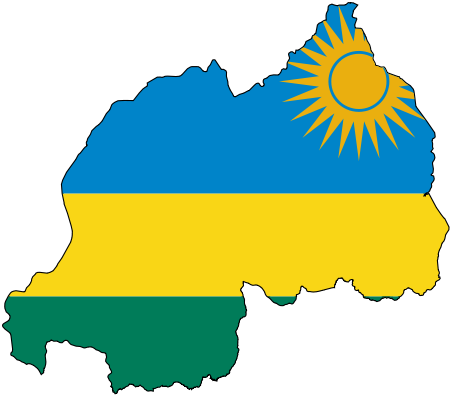Evaluation of Health Promotion and Prevention Programs for Blood Disorders
Blood disorders are causes of morbidity and mortality, affecting one in 76 people in the United States (US).
Hemophilia, von Willebrand disease (VWD), venous thromboembolism (VTE), and thalassemia are the blood disorders addressed within three separate components in this notice of funding opportunity (NOFO).
The purpose of this NOFO is to provide credible health information and evidence-based training as well as to support the implementation and evaluation of evidence-based health promotion and education programs.
The health promotion framework will be used to ensure early identification, intervention, and management to improve outcomes for people with blood disorders.
Applicants would apply to only one of the three following blood disorder components:
1) Hemophilia and VWD or 2) VTE or 3) Thalassemia.
Component 1:
Hemophilia and VWD are the most common inherited bleeding disorders and affect 20,000 and up to 3. 2 million people in the US, respectively.
People with bleeding disorders have a predisposition to spontaneous or traumatic bleeding episodes following injuries and surgery.
The options for this component are treatment (specific to males), inhibitor development, and women with bleeding disorders.
Applicants for component 1 must select at minimum two of the options or may select all options.
Component 2:
Each year in the US, it is estimated that VTE affects as many as 900,000 people, is responsible for up to 100,000 deaths, and is associated with healthcare costs of approximately $10 billion dollars.
Over half of VTE events are associated with a recent hospitalization.
Hospital-associated VTE is often preventable but VTE prevention strategies are not applied uniformly or systematically across US hospitals.
This funding opportunity supports sustained awareness of VTE using credible VTE health information via existing materials.
It additionally seeks to promote VTE best practices that utilize risk assessment models and appropriate prophylaxis as well as the awareness of technologies, such as natural language processing, used by hospitals for early identification, diagnosis, and treatment of VTE.
Component 3:
Beta thalassemia major is the most severe form of thalassemia and affects at least 1,000 people in the US.
Blood transfusions for thalassemia are the foundation of care; however, transfusion-related complications can result in morbidity and mortality.
This component builds on earlier work and previously developed strategies that can be expanded to locate people with thalassemia and disseminate evidence-based, credible health information.
Hemophilia, von Willebrand disease (VWD), venous thromboembolism (VTE), and thalassemia are the blood disorders addressed within three separate components in this notice of funding opportunity (NOFO).
The purpose of this NOFO is to provide credible health information and evidence-based training as well as to support the implementation and evaluation of evidence-based health promotion and education programs.
The health promotion framework will be used to ensure early identification, intervention, and management to improve outcomes for people with blood disorders.
Applicants would apply to only one of the three following blood disorder components:
1) Hemophilia and VWD or 2) VTE or 3) Thalassemia.
Component 1:
Hemophilia and VWD are the most common inherited bleeding disorders and affect 20,000 and up to 3. 2 million people in the US, respectively.
People with bleeding disorders have a predisposition to spontaneous or traumatic bleeding episodes following injuries and surgery.
The options for this component are treatment (specific to males), inhibitor development, and women with bleeding disorders.
Applicants for component 1 must select at minimum two of the options or may select all options.
Component 2:
Each year in the US, it is estimated that VTE affects as many as 900,000 people, is responsible for up to 100,000 deaths, and is associated with healthcare costs of approximately $10 billion dollars.
Over half of VTE events are associated with a recent hospitalization.
Hospital-associated VTE is often preventable but VTE prevention strategies are not applied uniformly or systematically across US hospitals.
This funding opportunity supports sustained awareness of VTE using credible VTE health information via existing materials.
It additionally seeks to promote VTE best practices that utilize risk assessment models and appropriate prophylaxis as well as the awareness of technologies, such as natural language processing, used by hospitals for early identification, diagnosis, and treatment of VTE.
Component 3:
Beta thalassemia major is the most severe form of thalassemia and affects at least 1,000 people in the US.
Blood transfusions for thalassemia are the foundation of care; however, transfusion-related complications can result in morbidity and mortality.
This component builds on earlier work and previously developed strategies that can be expanded to locate people with thalassemia and disseminate evidence-based, credible health information.
Related Programs
Blood Disorder Program: Prevention, Surveillance, and Research
Department of Health and Human Services
Agency: Department of Health and Human Services
Office: Centers for Disease Control - NCBDDD
Estimated Funding: $8,200,000
Office: Centers for Disease Control - NCBDDD
Estimated Funding: $8,200,000
Who's Eligible
Obtain Full Opportunity Text:
Full Notice of Funding Opportunity in the Federal Register
Additional Information of Eligibility:
Open competition
Full Opportunity Web Address:
https://www.federalregister.gov/d/2019-17137
Contact:
Agency Email Description:
Grants Policy
Agency Email:
Date Posted:
2020-02-08
Application Due Date:
Archive Date:
2020-05-30
Social Entrepreneurship
Spotlight
Rwanda as Social Entrepreneur Fund Beneficiary

The Republic of Rwanda has been picked as one of the six African countries as beneficiaries for a new fellowship fund program designed at supporting social entrepreneurs in tackling issues on food security.
